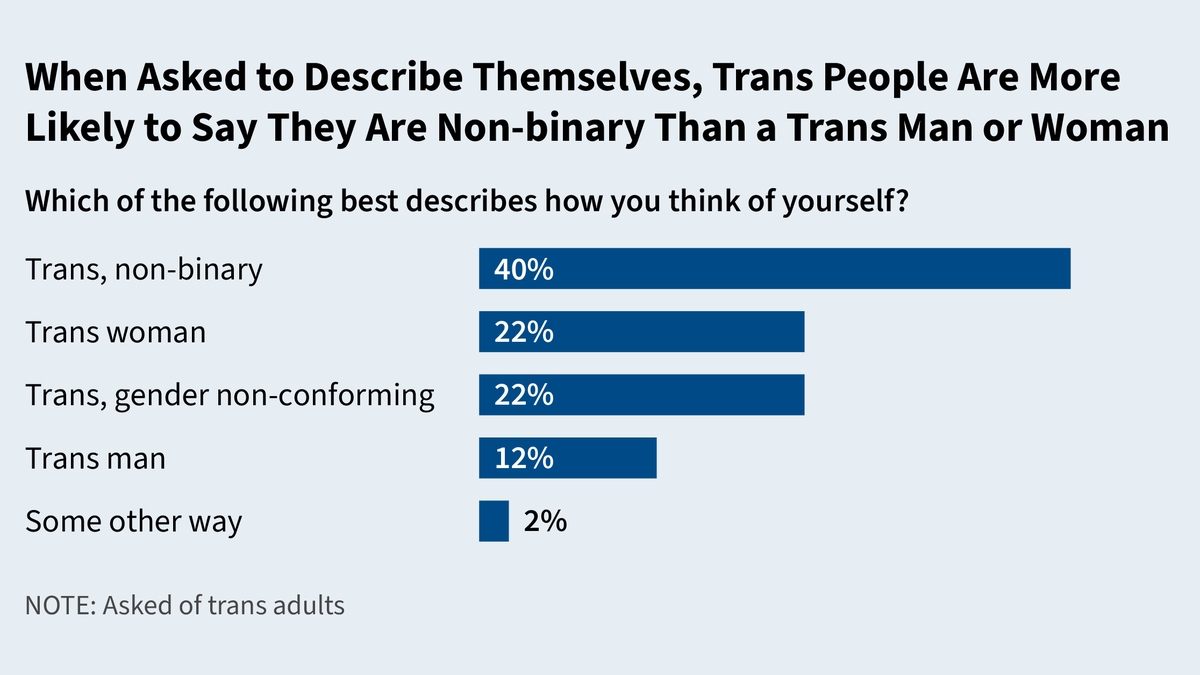
Healthcare Issues that Transgender People Face
In the United States, transgender people encounter a wide range of difficulties, particularly in the medical industry. Almost half of the respondents to the US Transgender Survey said they had unpleasant experiences in medical facilities. These incidents range from subpar care from medical professionals to denials of insurance by patients. Despite nearly 100,000 respondents reporting general well-being, a startling 44% of respondents reported experiencing severe psychological distress in the month before the survey. Additionally, 28% acknowledged that they shied away from seeking necessary care out of concern for mistreatment, and 26% admitted they had issues with their health plans, including being denied coverage for gender-affirming healthcare.
Effect of State Laws on Transgender People
According to the National Center for Transgender Equality’s 2022 US Trans survey, 47% of trans people were considering moving due to state laws, and 5% were actually relocating. Access to crucial medical services like hormone therapy, surgery, and gender-specific care are frequently limited by these laws. Due to their concern about being mistreated, about 24% of respondents chose not to visit a doctor, and nearly half of them reported having negative interactions with medical experts. Despite these challenges, 94% of respondents reported feeling happier in their lives after transitioning to their preferred gender, and 98% said they felt happier after receiving hormones that matched their gender identity.
Legal Barriers to Gender-Affirming Care
The problem of providing trans children with gender-affirming treatment is becoming more and more important. Nearly 38% of trans youth in the United States, between the ages of 13 and 17, reside in states where access to gender-affirming care is restricted by legal restrictions. 38% of trans people in this age group are affected by the increase in the number of states with such rules or procedures, which increased from only four in June 2022 to 23 by January 2024.
Social Influences on Trans People’s Health
The health of trans people is significantly influenced by a number of social factors. Their health has been significantly impacted by changes in cultural understanding, visibility, and recognition of trans people, as well as the creation of ethical standards for research involving transgender people. However, because trans care has become more politicized, they still have a disproportionately high burden of mental health problems. These issues have only gotten worse as a result of the increase in hate crimes against transgender people and the legislature’s focus on transgender care.
The National Cancer Institute’s Part in Addressing Health Disparities
The National Cancer Institute (NCI) is dedicated to addressing health disparities, particularly those that affect populations of sexual and gender minorities (SGM). Evidence suggests that SGM groups have a higher risk of developing certain cancers and have worse post-diagnosis physical and mental health. The NCI acknowledges that prevention, testing, care, and survivorship attention frequently fall short of meeting the particular needs of SGM communities. A significant barrier to the advancement of SGM cancer research is the lack of systematic and standardized Sexual Orientation and Gender Identity (SOGI) data collection in surveillance, research, and clinical settings. Therefore, NCI’s funding for the collection of uniform SOGI data at Cancer Centers is an important initiative in this regard.



